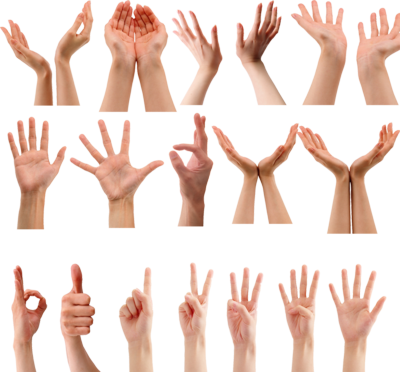The teachings of the Bahá’í Faith are rich in principles that emphasize justice, compassion, and the oneness of humanity. Among the myriad of pressing social issues, the call for justice in the face of systemic inequality has surfaced prominently within modern discourse, particularly in light of movements advocating for racial equality. A colloquial phrase that has become synonymous with such struggles, “Hands Up Don’t Shoot,” originates from a tragic incident that catalyzed a widespread outcry against police violence and systemic racism. In this context, we must ponder a critical inquiry: Should I protest? And then what? This exploration endeavors to dissect the moral underpinnings of protest within the Bahá’í framework, contemplate its implications, and chart a path forward for actionable change.
The Bahá’í teachings urge followers to respond to social injustices with calm deliberation, advocating for non-violent means of protest that resonate with the principles of brotherhood and unity. It raises an initial question: What constitutes a righteous protest? A genuine protest is marked not merely by the fervor of emotion but by the intention behind it. Are we protesting only to voice our frustrations, or are we striving for an elevated purpose aimed at fostering understanding and healing? The doctrines of the Faith place immense value on intention; understanding the deeper motive can illuminate the path toward constructive engagement.
In navigating the tumultuous waters of protest, the Bahá’í framework provides a unique lens. It asserts the significance of collective engagement, whereby individuals unite in search of justice while remaining fervently committed to the principle of non-aggression. The decisions surrounding involvement in protests call for introspection—What am I willing to risk in pursuit of this cause? Yet, this inquiry extends beyond personal sacrifice. It encompasses the broader implications of our actions on community harmony. Can the act of protesting serve to bridge divides rather than exacerbate them? The teachings encourage a profound exploration of these questions.
One may wonder: in times of profound societal unrest, how does one decide when to act? The Bahá’í concept of “consultation” becomes paramount here. Engaging in meaningful dialogue with fellow community members can guide individual action towards a collective direction. This process implores us to consider diverse perspectives, weighing the merits of various forms of protest. Can we embrace peaceful demonstrations as a manifestation of love, or do they risk becoming spectacles of discord? These discussions empower individuals to align their actions with the collective conscience of their community, thus fostering a sense of unity amidst diversity.
Moreover, an examination of the aftermath of a protest unveils another layer worth addressing. What follows the fervor of demonstrating in the streets? The Bahá’í teachings remind us that impactful social transformation does not commence and conclude with noise; rather, it necessitates sustained commitment to change. Therefore, post-protest analysis emerges as a crucial phase in the activist process. Postulating potential outcomes signifies responsibility. Have we merely contributed to noise without follow-up, or have we galvanized efforts towards constructive dialogue, policy change, or educational initiatives? The success of a protest can often be extrapolated from the tangible actions that persist long after the marches have concluded.
One cannot overlook the intricate dynamics of privilege and power within the context of social protests. Acknowledging one’s position relative to systemic structures invites vulnerability and critical self-reflection. The Bahá’í teachings encourage acknowledgment of the diverse experiences that enrich our humanity. How might our unique positions influence our motivations to protest or engage with issues of justice? Embracing humility is essential. This understanding not only shapes our individual actions but also facilitates greater empathy towards those disproportionately affected by injustice. The act of recognizing privilege serves as a conduit to fortify alliances necessary for impactful change.
Furthermore, as the implications of protesting extend beyond the immediate context, a broader perspective becomes essential. Societal issues often possess manifold layers, interwoven with economic, political, and cultural influences. Thus, the Bahá’í principle of identifying the root causes of social disparity encourages more profound contemplation. Protesting against visible injustice, while significant, beckons us to question deeper societal constructs that perpetuate inequality. Are we equipped to challenge the foundational beliefs that maintain oppressive systems? This inquiry becomes integral to effecting systemic change across societal structures.
Engaging with questions such as these fosters a deeper understanding of the relationship between individual action and collective progress. Bahá’í teachings explore the synthesis of action and reflection, inviting one to regard both as essential partners in the pursuit of justice. Should we protest? The answer is nuanced; it lies not only in the affirmative but in a broader commitment to continuous advocacy. And then what? The path forward mandates further reflection and action—educating ourselves, engaging with stakeholders, and pursuing policies that promote equality and compassion.
In conclusion, the Bahá’í teachings illuminate a pathway of social engagement characterized by intention, empathy, and enduring commitment to justice. The query of whether to protest reveals a deeper call for purposeful action enveloped in love and unity. As individuals and community members, we bear the responsibility to transform our response into a concerted effort aimed at unequivocal change. The journey does not end in the streets; instead, it begins there—a call to reflect and engage, urging us to create a future grounded in the principles of equality and oneness of humanity. To refuse the call for action is to forsake our commitment to a more just and compassionate world.
